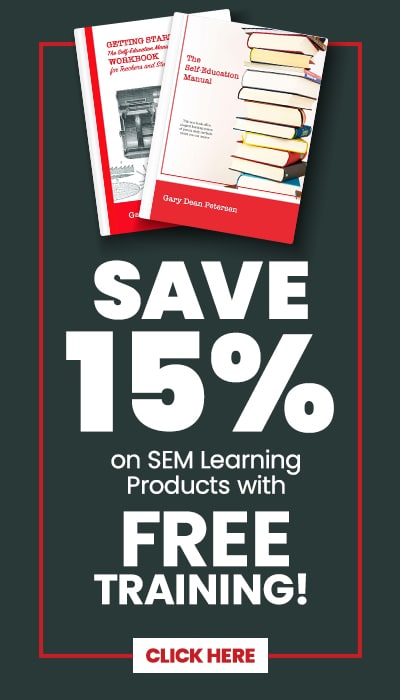Impetus
As an adult lifelong learner, I enrolled in classes at an institution 100 miles away. Two weeks into the semester I suffered a detached retina and came under doctor’s orders not to travel to college for a month. At the end of that month another detached retina and similar doctor instructions continued my absence from class. So, I researched literature about how to teach myself. Now I am sharing what I learned about study methods.
Why These Study Methods
Knowing how self-study works could help students, teachers, caregivers and other learners. My information is already gathered, analyzed and ready to apply. Schools frequently do not teach students how to study, so life is harder for both the student and the teacher.
My own experience with university chemistry lab students showed rapt attention and engagement from beginning to end of class time. Also, scientific literature backs many of the methods as effective in learning.
Students wonder where to begin, especially if they have negative feelings about the subject or lack of confidence that they are capable of learning it. Since some students are unaware that individual methods tend to address isolated aspects or steps of the learning process, they could well sense that any method they think about using seems somehow incomplete for the purpose. Sometimes the subject can seem overwhelming or too large or may have parts that seem confusingly similar to one another. Other issues include concerns about how to understand, remember or apply the learning.
How
To learn such items as entries on a chart or a lab safety precaution involves the application of several study methods in a logical sequence. The uniqueness of my approach is to guide the choice and sequencing of study methods for effective learning outcomes.
Specific methods help with certain parts of the activity involved in learning. For example, some methods help in adjusting a learner’s attitude toward a subject. Other methods help a learner to identify an object to learn. Still other methods aid in preparing an object to be memorable. Other methods are for practicing recall. And another method involves using or applying the learning.
Essential missing pieces in a learner’s knowledge necessarily require detouring to learn the missing information before continuing to learn the subject. Specificity can shorten the detour, since the missing piece could be an anomalous, isolated occurrence.
Author Teaching Background
As an elementary student, I suffered the effects of a failed experimental method of learning to read, called sight reading, which involved rote memory of the shapes of words instead of reliance upon phonics. As the oldest child in my family and in my early play groups, I found myself explaining to younger associates. At the request of my high school principal, I tutored until graduation a senior whose parents had suddenly expired, leaving several young siblings and 20 cows to milk morning and night. In the army, I was asked to drill fellow recruits who took longer to master the required procedural quizzes. As a non-profit executive I trained volunteers. I taught children in Sunday School for thirty-four years. I helped raise my three children and had a career teaching in public schools. I have more recently applied my new studying system in tutoring secondary students and in teaching two semesters of chemistry labs at a university.
Success Example
The following describes my successful application of the study methods in 2019 in two semesters of chemistry labs at a university.
What worked for me was to design multiple-choice weekly quizzes for ten percent of the grade and give out the answers a week in advance of taking the quiz. That way, students had some control over their grade and an incentive to practice the study methods.
I found that 14 questions allowed for a good spread of possible percentage grades, without seeming too long. Each actual quiz asked the questions in a different order than on the study-sheets-with-answers. Similarities between questions made it challenging for those choosing not to study. I offered make-up quizzes for absentees, and also allowed students the option of later retaking any quizzes receiving grades below 70%.
At the start of the semester, I announced that my initial expectation was that they would all earn an A grade. When grading their classwork, I issued surprise bonus points and written compliments for exemplary efforts that I noticed.
Email us at info@sem-education.com or fill out the form below.
"*" indicates required fields
